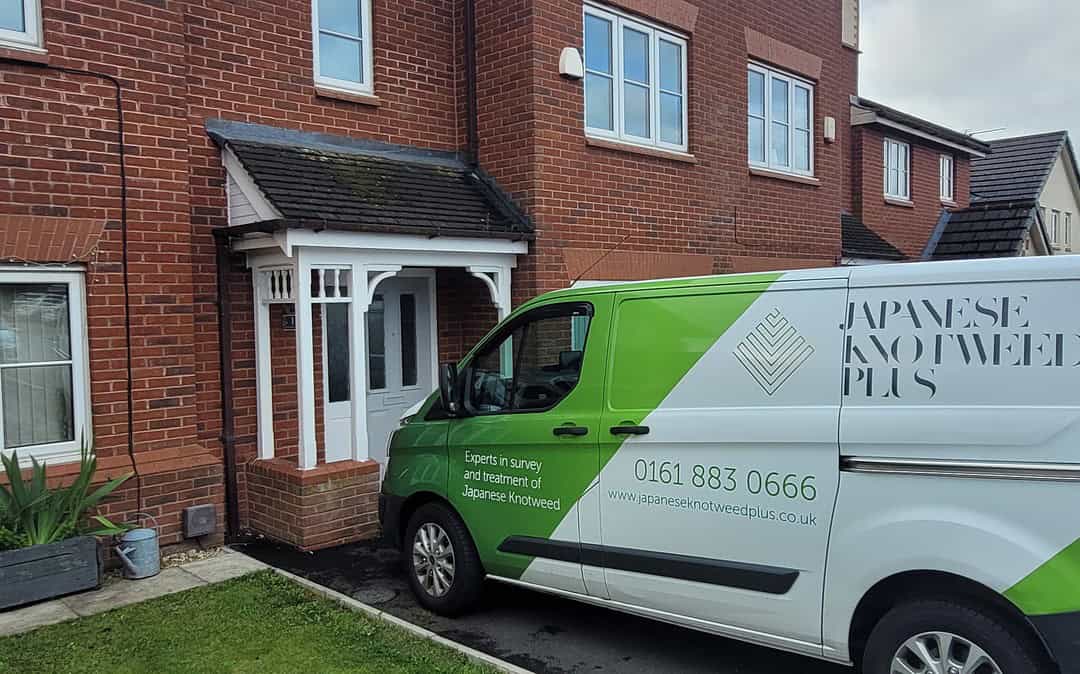Is it easy to sell a house with Japanese knotweed?
Selling a house with Japanese knotweed (Fallopia japonica) can be more difficult than selling a house without it. Japanese knotweed is a highly invasive plant. That may cause damage to buildings if it grows too close to them. Moreover, it can be difficult and costly to remove. Many mortgage lenders and surveyors are aware of the risks associated with Japanese knotweed. Therefore they may be reluctant to lend on or value a property that is affected by it. I get asked Is it easy to sell a house with Japanese knotweed? 2023
Additionally, It’s legally required to disclose any known knotweed infestation to any potential buyers. So it could be a deterrent for them. In the UK, it’s considered a “Schedule 9” invasive species by the Wildlife and Countryside Act 1981. This means that it is illegal to plant or cause it to grow in the wild.
If you want to sell your house in the UK and you have Japanese knotweed. There are certain measures you need to put in place to ensure that you comply with the regulations and laws surrounding the sale of a property with this invasive plant.
Always tell the buyers of your property that you have Japanese knotweed
Firstly, you need to disclose the presence of Japanese knotweed in your property to potential buyers. You must be honest and upfront about its presence, as failure to disclose it could result in legal action being taken against you in the future.
You should also seek professional advice from a specialist company like Japanese Knotweed Plus. We can provide you with a detailed report on the extent of the knotweed infestation. And any necessary remediation works needed to control and eradicate it. The report will provide the buyer with a clear understanding of the problem. Moreover what measures have been taken to mitigate the knotweed’s impact?
It is also essential to have a treatment plan in place. It will outline how the Japanese knotweed will be managed and controlled after the sale of the property. This plan will reassure the buyer that the knotweed will not continue to grow and spread once they have taken ownership of the property.
Japanese Knotweed Management Plan
It is recommended that you obtain a Japanese Knotweed Management Plan (JKMP) from a qualified professional. This will detail the specific measures to control the infestation and prevent its spread. A JKMP can also be a valuable tool in negotiations with potential buyers. Demonstrating that you have taken the issue seriously and have a plan in place to manage the knotweed infestation.
A Japanese Knotweed Management Plan (JKMP) is a detailed document that outlines the measures that will be taken to control and eradicate the Japanese knotweed on your property.
A JKMP should be prepared by a qualified professional who has experience in dealing with Japanese knotweed. The plan will typically include a site survey to determine the extent of the knotweed infestation, a risk assessment, and a detailed treatment plan outlining the specific measures that will be taken to manage and control the knotweed.
Having a JKMP in place demonstrates to potential buyers that you have taken the issue of Japanese knotweed seriously and that you have a plan in place to manage and control the infestation. This can help to reassure buyers that the knotweed will not continue to spread and cause damage to the property once they have taken ownership.
A JKMP can also be a valuable negotiating tool when selling a property with Japanese knotweed. It can provide a basis for discussions with potential buyers. Outlining the measures that have been taken to control the knotweed and the costs involved.
The treatment plan for Japanese knotweed
Most treatment plans for Japanese knotweed involves five years. The treatment process would begin with an initial treatment in June, followed by another treatment in September of the same year. This process would continue until the fifth year of treatment.
By the end of the fifth year, the Japanese knotweed is usually eradicated, with no further signs of growth. The process involves a gradual and sustained approach to ensure the effective control and eradication of the plant.
Ten Year insurance backed guarantee
Some mortgage lenders and surveyors may require a guarantee as a condition of granting a mortgage or approving the sale of the property.
An insurance-backed guarantee assures the buyer that any remediation works. Carried out to control and eradicate the Japanese knotweed will be covered for a period of up to ten years. This means that if the knotweed reappears within the guarantee period, the buyer can claim the policy for the cost of further treatment and remediation.
If you are selling a property with Japanese knotweed It is recommended that you seek advice from our surveyor who can guide whether a guarantee is necessary. Moreover discusses the most suitable options available. It is important to ensure that any guarantee offered is from a reputable and regulated provider and that it meets the needs of both the buyer and their mortgage lender.
If you follow the steps above you will have no problem selling your property. you will reassure your buyer and the sale should go through smoothly. We have never had any of or clients buyers refused a mortgage.
